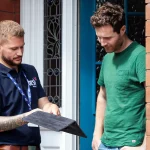Openreach Start SOGEA Pilot and Reveal Standalone Broadband Prices
Openreach (BT) has today confirmed that their new Single Order Generic Ethernet Access (SOGEA) product, which enables consumers to buy a standalone FTTC “fibre broadband” (VDSL2 or G.fast) line without the voice (phone) service, will enter the UK ISP pilot phase on 9th January. The first prices have also been published.
At present most consumers on Openreach’s national network must buy their phone service alongside line rental (included by default) and then broadband is optionally added on top, although many ISPs bundle the two together by default. An exception exists for “full fibre” (FTTP) ultrafast broadband lines (i.e. no copper involved), which can optionally be purchased in a data-only (no phone) variant.
However most people only keep a fixed line phone (voice calls) service because it’s necessary for their broadband to work and increasingly few bother to use this for making calls, with Mobile handsets and VoIP often proving to be more cost effective. On top of that the nationwide roll-out of “full fibre” networks will eventually make the old phone services irrelevant (old analogue phone services will be withdrawn in 2025).
Advertisement
In response Openreach has spent the past few years developing an alternative product, which carries the distinctly un-sexy name of Single Order Generic Ethernet Access (SOGEA). In simple terms this will allow you to buy a broadband connection without any phone (voice) service attached (the latter essentially becomes optional via IP / VoIP, with broadband now being the default).
The service also introduces a new front plate for the latest NTE5C Master Socket, which where necessary has been designed to prevent analogue voice being reinjected onto Openreach’s network from the end users premises (SOGEA technical details). All of this will help to support a future direction where voice calling is largely handled by VoIP.
This is a radical shift for both the network operator and ISPs (reversal of the old approach), which has required a lot of internal changes to be made and as a result the early trials have gone on longer than expected (example).
The New Pilot and Indicative Pricing
At launch the SOGEA pilot service will only be available on FTTC and G.fast (SOGFAST – terrible name) broadband lines, although there are plans to extend this to include older ADSL / ADSL2+ lines in the future. The pilot itself will start on 9th January 2019 and run for 3 months until 31st March 2019. During this period any lines / customers involved will benefit from free rental and connection (lasting until 30th September 2019).
Advertisement
In theory this pilot will then be followed by the Early Market Deployment Launch (EMDL) phase, which leads ISPs into a full commercial launch, although no firm date has been set for this. Openreach have instead left open the possibility that their pilot could be extended if the required pilot outcomes aren’t achieved.
Meanwhile the SOGEA wholesale pricing that has been announced today is still indicative (subject to change), although as expected it’s largely just a merge of the existing copper line rental costs with the broadband side (connection and rental fees).
For example, the monthly rental for an 80Mbps (20Mbps upload) SOGEA line is £17.11 +vat, which compares with just £9.95 +vat on the same FTTC tier but you usually still have to add line rental to the latter (i.e. a fully unbundled MPF line adds around £7.15 to £7.57 per month to this – depending on service class). When taken together the costs are similar to the old approach.
We also note that migrations will now be charged at the sum of £5 + the appropriate FTTC (VDSL2 or G.fast) connection (e.g. a SOGEA Installation at Cabinet “Self Install” will be charged at £51.96 +vat – this represents a reduction from the previously announced principle of £11.24 + the appropriate FTTC connection).
Advertisement
Bandwidth Variant Rental Charges for ISPs
| Feature | Annual Rental £ Exc VAT |
|---|---|
| Up to 40Mbit/s downstream and up to 10Mbit/s upstream | 155.50 |
| Up to 55Mbit/s downstream and up to 10Mbit/s upstream | 186.71 |
| Up to 80Mbit/s downstream and up to 20Mbit/s upstream | 205.31 |
Connection Charges for ISPs
| Feature | Connection £ Exc VAT |
|---|---|
| SOGEA New Provide “Self Install” | 78.86 |
| SOGEA New Provide with installation at Premise | 130.90 |
| SOGEA Installation at Cabinet (“Self Install”) at Openreach served premise | 51.96 |
| SOGEA Start of Stopped Line (“Self install”) at Openreach served premise | 9.63 |
| SOGEA Start with Installation at Premise at Openreach served premise | 104.00 |
| GEA-GEA Migration (same premise) | 9.63 |
| GEA-GEA Migration (same premise) with Installation at Premise | 104.00 |
Further details can be found here but as usual we’ll have to wait and see how ISPs eventually sell such products before truly being able to judge its impact. We suspect that some may initially struggle with the question of how to promote or transition their product line-up to such a service, particularly since on the surface it doesn’t offer much of a cost saving and most people currently take a bundle.
At this point we should highlight that a number of other ISPs, such as AAISP and Freeola, have already tweaked their existing phone line services to remove the voice component for those who only seek a broadband line (i.e. it’s not SOGEA but follows the same sort of idea).
Mark is a professional technology writer, IT consultant and computer engineer from Dorset (England), he also founded ISPreview in 1999 and enjoys analysing the latest telecoms and broadband developments. Find me on X (Twitter), Mastodon, Facebook, BlueSky, Threads.net and Linkedin.
« ISP Onestream Cuts 35Mbps FTTC UK Broadband Price to £19.95

















































Comments are closed